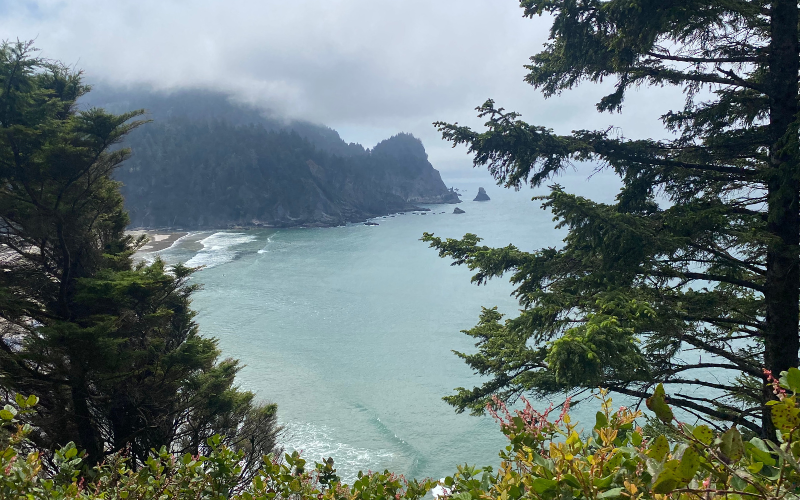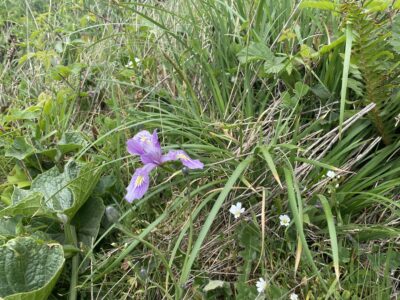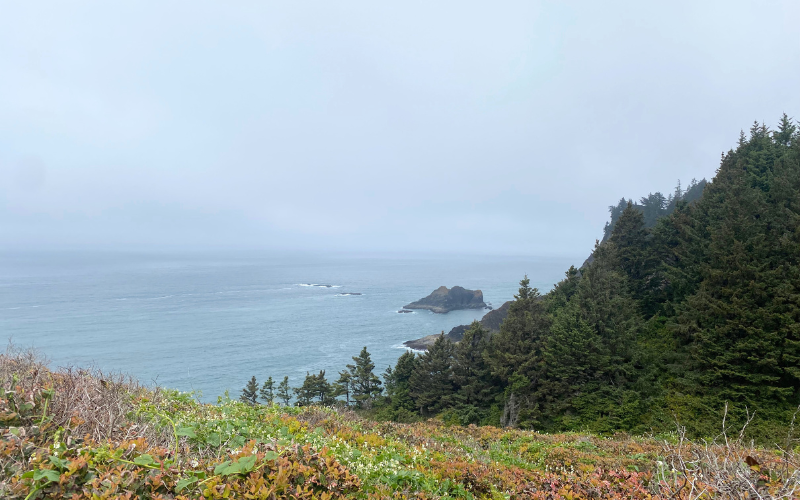
Oregon’s Marine Reserves are described in a variety of ways. For example, you may sometimes hear them referred to as underwater state parks, because they’re similarly dedicated to conservation and scientific research and carefully managed.
A difference, however—other than one is a land-based environment and one marine—is that it’s a bit more challenging to experience the marine reserves than it is to visit and experience Oregon’s state parks. In fact, it’s a bit more challenging to get to know Oregon’s ocean, in general, as vast and deep and expansive as it is. That’s why the scientific research conducted at Cape Falcon Marine Reserve and the other four sites in Oregon is so important.
The good news is that you can observe Cape Falcon Marine Reserve and get a better understanding of the life it supports at tide pools along the adjacent beach. Additionally, nearby hiking trails in Oswald West State Park also provide views out over the marine reserve.
 One to consider, if you’re up for some distance, is the Cape Falcon trail. It begins at the Cape Falcon west parking lot along U.S. Highway 101, just north of the main Short Sand Beach parking lot with restrooms. A quick ½-mile hike to the Kramer Memorial gives way to a brilliant overlook of Short Sand Beach and Cape Falcon Marine Reserve. Or you can continue the rest of the way through old-growth forest out to Cape Falcon itself, where on a clear day you may see north all the way to Tillamook Head and south to Cape Lookout.
One to consider, if you’re up for some distance, is the Cape Falcon trail. It begins at the Cape Falcon west parking lot along U.S. Highway 101, just north of the main Short Sand Beach parking lot with restrooms. A quick ½-mile hike to the Kramer Memorial gives way to a brilliant overlook of Short Sand Beach and Cape Falcon Marine Reserve. Or you can continue the rest of the way through old-growth forest out to Cape Falcon itself, where on a clear day you may see north all the way to Tillamook Head and south to Cape Lookout.
Here, nature’s glory is in full display. Just last week, gray whales were spotted playing off the shore, which is not uncommon (you should always keep an eye out for whales!). You also will catch a glimpse of various shorebirds taking flight over the water and perching on the rocky cliffs. And this time of year, vibrant wildflowers are blooming along the trail and atop the cape. It is quite beautiful, and a way to observe and appreciate this valuable marine conservation site that we have on the northern Oregon Coast. If you do the entire trail, it’s roughly 5 miles.
Keep in mind: More than a million people visit Oswald West State Park each year, and its popularity is only growing. That access to outdoor recreation is meaningful in its ability to connect people to place. But what we do makes an impact.
Please set an example for responsible recreation and stay safe! Follow these simple guidelines:
- In case of an emergency, call 9-1-1.
- Stay on maintained trails, both for safety and to not disturb potentially sensitive habitat.
- Pack out all trash and help pick up litter, including cigarette butts.
- Leash pets and pick up all waste.
- Do not cross fences, climb cliffs, or walk out onto rocks or headlands.
- Be prepared for sudden weather changes.
- Watch for sneaker waves and rolling logs on beaches.
- Bike, bus or carpool whenever possible.

Comments